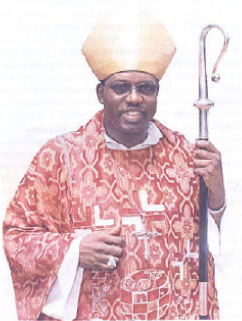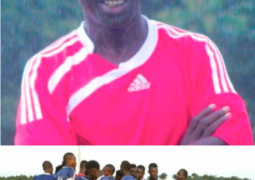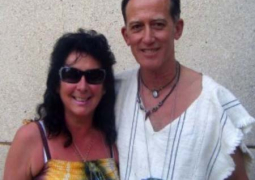
God’s Dear People of the Church of Province of West Africa (CPWA), Friends and Colleagues,
“For to us a child is born, to us a son is given, and the government will be on his shoulders.
And he will be called Wonderful Counsellor, Mighty God, Everlasting Father, Prince of Peace.
Of the increase of his government and peace there will be no end.
He will reign on David’s throne and over his kingdom, establishing and upholding it with justice and righteousness from that time on and for ever.
The zeal of the Lord Almighty will accomplish this.”
(Isaiah 9: 6 and 7)
The words of the prophet Isaiah – revealing the word of God, as he foretells the birth of the Messiah.
At this time we celebrate the birth of the Messiah – Jesus. From these words we can see that this child is to be born to a very specific role in life. He is to be a leader. He will establish a kingdom which he will rule with justice and righteousness. In his earthly ministry, Jesus often spoke of “the kingdom”. “The Kingdom” : a place of justice and righteousness; a place of such value that it is well worth giving up everything else in order to find it and hold on to it; a place where all are welcome if they can accept the will of God; a place where each person is of infinite value; a place where the lost can be found. A wonderful place indeed.
It is also a wonderful thought to consider that we are all children of God, and have each been born as a unique person, and each for a unique purpose. After birth every person is shaped by two things – nature and nurture. There are endless debates about which is more powerful. Certainly we each inherit certain qualities from our parents and ancestors – particularly our physical characteristics. However, our family life, the culture in which we grow up and what experiences we may have produce extremely powerful forces that guide our personalities and development as people.
Throughout the world, some cultures impose far stronger guidance on the population than others. This can have the benefit of providing some security, but can also produce difficulties for those who do not conform to the norm. (Here I refer to characteristics that may not conform, but are not harmful to the wider community). These individuals have to struggle to find the pathway of life that they feel drawn to. We all have to find a path in life that allows us to reach our full potential as individuals, and so also enrich the community in which we live.
In the Bible, the picture we have of Jesus is not quite complete. From the age of twelve to thirty we know little. We have much detail of his birth. He was born to a mother of great faith and obedience to God. Joseph, whom Mary later married, took Jesus as his own child. Joseph also had great faith, and obeyed all that was asked of him by God. In his childhood, we are told that Jesus was aware of his heavenly Father, but also obedient to Mary and Joseph. We believe he continued to live with them into early adulthood, and learned the skills of a carpenter. He was also learned in the Holy Scriptures. We have great detail of the last three years of Jesus’ earthly life (from 30 to 33 years of age). We know that he sought and followed the will of his Father (God). We know that he regularly sought the presence of God, in prayer. We know that Jesus had many followers and some closer friends. We also know that Jesus remained unmarried, and led a single life until his death.
Let us consider those who chose the single life. Throughout the ages it has been the custom that, at around a certain age, a large proportion of men and women seek the married life, and most undertake this way. However, some do not. Certainly, in northern countries, this has become an acceptable way of life. In southern – and African – culture this can be less so.
All people are part of a wider community. This includes babies, children, young people, adults, elderly people, those who are married, those who are single, those who are poor in material wealth, and those who are more well-off. The wider community can even comprise those of different cultures and nationalities. Whatever position any person has in the community, we can be sure that every person has a role and that every person is of value. St. Paul found an ideal image of the Church to be that of the Body :– a body where each part is of value; where each part has a gift and a role to play; and where each part is sensitive to the joys and sorrows of the other parts. The same can be said of community. In this reflection we are particularly looking at those who follow the single life.
A single person may find themselves in this lifestyle through choice, or it may be as a result of what life has given them. Maybe their partner, or potential partner, has died. Maybe they never found the “right” person to share their life with. Maybe they prefer to serve their community as a single person, whereby they can have more time to focus on community outside the family circle. Maybe they are called to the religious life. Whatever the case may be we are obliged, by our common and shared humanity, to respect the choices of others (so long as they do not harm the community). Let us rejoice in the single people whom we live alongside, and give thanks for who they are and all they do in their community.
At this time we celebrate the birth of Jesus, who chose the single life in order to fulfil the mission for which he came. He came to live on earth among us to show us the way to our Father God. He came to establish God’s kingdom here on earth. He came to offer his life that we might live. No person can argue that this is not a life well lived.
We give thanks for the birth of the Christ child and all that he has meant to the world. May God’s gifts of peace and joy be yours this Christmas.
On behalf of the Anglican Church in The Gambia, Senegal and Cape Verde, and the Church of the Province of West Africa, which also includes Liberia, Sierra Leone, Ghana, Guinea Conakry, Guinea Bissau and Cameroon, I wish you and all your loved ones a very happy Christmas.
Your Metropolitan Archbishop and Friend,
++Tilewa



